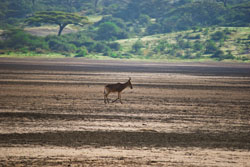Restoring woodlands in Tanzania
The biodiversity of Africa is stunning, yet often comes under pressure from natural and man-made threats. The EU has backed numerous projects to address these threats, which have put Tanzanian woodlands in danger. The EU-funded project 'Management of indigenous tree species for ecosystem restoration and wood production in semi-arid Miombo woodlands in Eastern Africa' (Mitmiombo) was one such noble project. Mitmiombo supported Tanzanian researchers to restore ecosystems and manage sustainable production. It transferred cutting-edge methods to achieve project objectives and establish research plots in the country to promote natural regeneration, as well as study growth, variations, pest problems and tree diseases. In addition, the team members encouraged technology transfer, workshops and exchange visits among researchers, aiming to involve local communities, farmers and tree growers as well. Exchanges with researchers beyond Tanzania, with focus on other African countries and Europe, were also encouraged. The project drew many valuable results from the test plots. It found that trees which make excellent timber constituted 55 % of the overall mix, although those in certain areas do not grow continuously. It also concluded that using the Miombo woodlands for timber is unsustainable and that deforestation was occurring at an alarming rate, mostly due to turning it into charcoal. Mitmiombo recommended instead the development of second generation biofuels that do not threaten the security of food and land, considering as well biodiversity in developing a bio-energy policy in forests. It advocated continued involvement of local communities and stakeholders in managing and regenerating the Miombo woodlands. The project results were disseminated to interested researchers and have helped to secure funding for future projects to preserve Tanzanian woodlands. In the meantime, conservation methods developed during the project were well received and have proven successful with people on the ground. This bodes well for improving sustainability in Tanzania, positioning the EU as an important player in the region as well.







